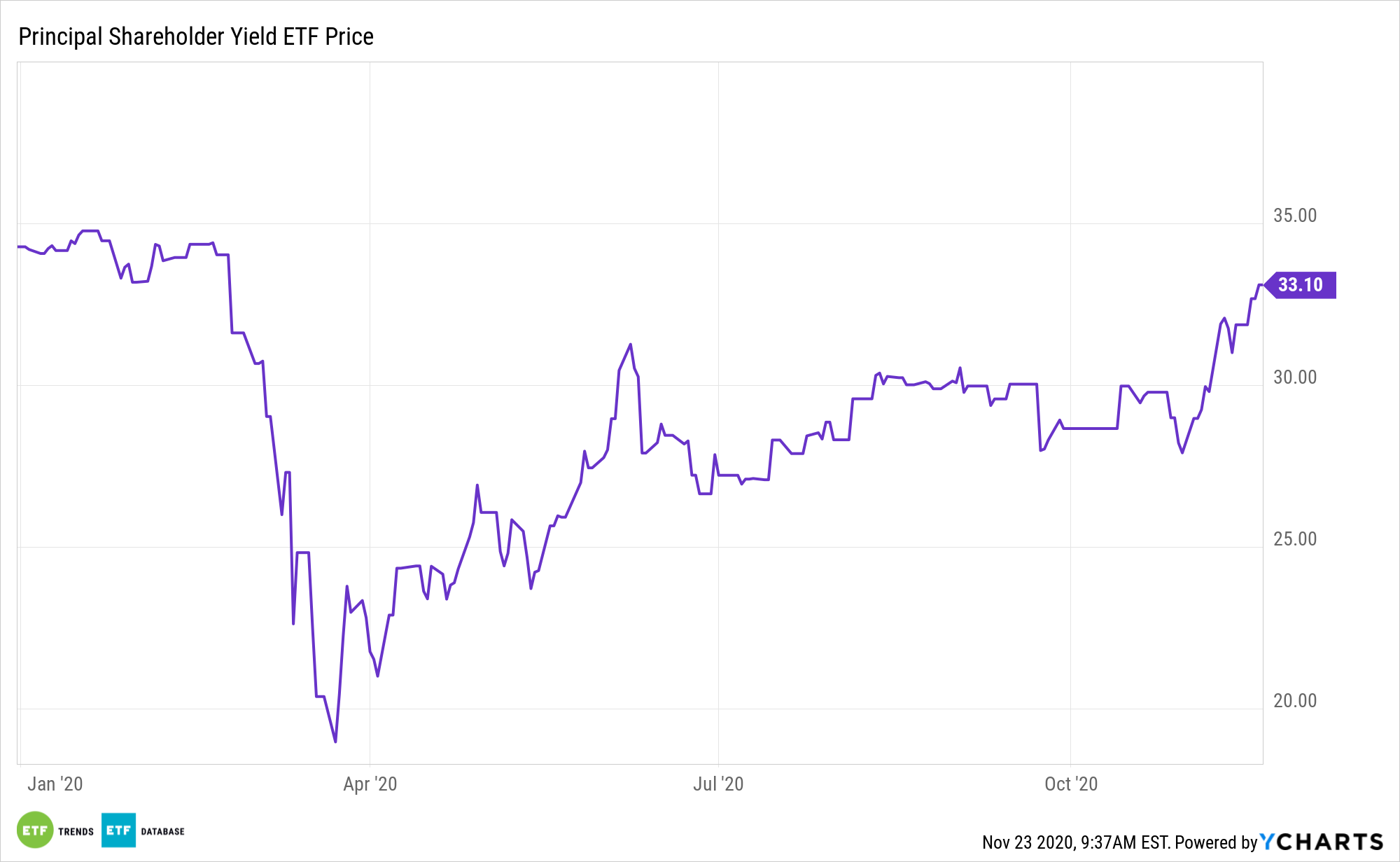Value stocks are perking up and that augurs well for advisors and investors mulling a return to the once beloved factor. It’s also a good time to consider fresher approaches to value investing, such as the Principal Value ETF (PY).
PY seeks to provide investment results that closely correspond to the performance of the Nasdaq US Shareholder Yield Index. The index uses a quantitative model designed to identify equity securities (including value stock) of mid- to large-capitalization companies in the Nasdaq US Large Mid Cap Index (the “parent index”) that exhibit high degrees of sustainable, shareholder yield.

Data suggest value is on the mend. The S&P 500 Value Index is up almost 5% over the past month, but PY is higher by more than 14% over the same period.
“Value stocks typically outperform coming out of recessions. That’s especially true this year, because their earnings have been hit particularly hard, making them easier to beat next year,” reports Evie Liu for Barron’s.
PY Perks: The Shareholder Friendliness Trifecta
Value stocks tend to trade at a lower price relative to their fundamentals (including dividends, earnings, and sales). While they generally have solid fundamentals, value stocks may have lost popularity in the market and are considered bargain-priced when compared with their competitors.
PY’s approach to value is relevant in today’s low yield environment where many investors are embracing lower quality companies. The three components of shareholder yield are good measures for shareholder friendliness. This trifecta helps investors target companies with a history of:
- Dividend growth
- Low debt
- The ability to support equity prices through share buybacks
“Since value stocks are often financially less sound—with lower revenue, higher debt, or tighter cash flow—a broadly diversified fund can help reduce the risk if some holdings flop,” according to Barron’s.
Value looks for cheap stocks relative to fundamentals like book yield, earning yield, or cash-flow yield, Quality stocks have healthy balance sheets and exhibit steady profitability.
Those traits make PY relevant because although value may rebound, it may not be a long resurgence.
When investing in these various factors, investors may notice that specific factors may outperform over short-term periods since they will act differently in differing market conditions. No single factor dominates or outperforms when looking at extended periods over the long-term.
For more on multi-factor strategies, visit our Multi-Factor Channel.
The opinions and forecasts expressed herein are solely those of Tom Lydon, and may not actually come to pass. Information on this site should not be used or construed as an offer to sell, a solicitation of an offer to buy, or a recommendation for any product.

